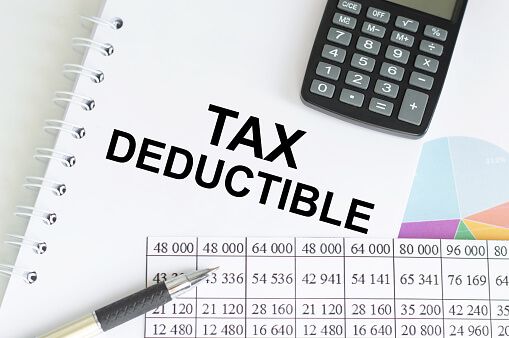A cheat sheet for investors to save money on taxes is a comprehensive guide that outlines various tax deductions available in 2026 to reduce taxable income. Key deductions include self-employment taxes, home office expenses, and contributions to retirement plans. To maximize savings, maintain detailed records of business expenses and utilize tools like Bonsai Tax for organizing receipts and identifying potential write-offs. The guide emphasizes the importance of staying updated with annual tax law changes to ensure all eligible deductions are claimed. By following these strategies, investors can potentially save thousands on their tax bills, with users of Bonsai Tax reportedly saving an average of $5,600 annually.
Tax deductions can be messy, especially when you are no tax expert - which is why everyone needs a tax deduction cheat sheet. With the tons of deduction options and numerous rules, you may not know what self-employed deductions you are eligible for or what you'll need in order to get your tax return.
Tax law changes every year! So, unless you claim the deductions that you are qualified for, your taxable income may take quite a big hit. We've updated our tax deduction guide for 2023. Read on to find out how to save money by taking the right tax deductions.
Note: The best way to maximize your tax deductions is to record all of your business expenses. Bonsai Tax could help. Our tax receipt organizer can scan your bank/credit card statements to discover potential tax write-offs and help you save thousands from your tax bill. In fact, users typically save $5,600. Try a 7-day free trial today.

How Do You Calculate Tax Deductions?
When calculating your tax deductions, you may either use the standard deduction method or itemized deductions. Each person has a different income and different expenses, so you'll need to go for the one that leaves more money in your pocket.
Ideally, a tax preparer can help you determine which option works better for you. You may try to calculate everything yourself the old-fashioned way, but it won't be as easy - and it wouldn't be called a cheat sheet either.
If you don't want to go for a tax accountant, then you may want to go for tax software. This will walk you through the steps that you will need to take in order to determine your tax deductions.
Online calculators may also be used, and the Internal Revenue Service (IRS) offers you this advantage as well. However, you will need a couple of financial records in order to make these calculations.
Here is what you should have on hand when calculating your tax deductions.
- Year-to-date taxable income
- Your most recent paychecks
- This year's paid federal income tax
- This year's state and local taxes that you paid
- FSA, HSA, and other similar plan contributions
- 401(k) or any other retirement plans that were sponsored by your employer
Aside from that, you will also need records that present other sources of your income. This may include, but won't be limited to:
- Grants or scholarships
- Income from self-employment
- Unemployment compensation
- Payment for estimated taxes
- Any other form of taxable income
- Investment income
- Interest paid for student loans
- Educator costs
- IRA contributions that weren't deducted from your income
There are some other deductions that you may qualify for - and in this case, you'll also need the records. Here are some other documents you'll need when adding in the tax calculator:
- Taxes that were paid already
- Medical expenses and dental payment records
- Slips for charitable contributions
- Qualified interest that you already paid for
- Losses caused by casualties
Each tax withholding is calculated differently. For the most part, you add the tax amount in its respective box, subtracting it from your taxable income. Once you do that, you will get your adjusted gross income.
Try doing itemized deductions first, and then compare them with the standard deduction. If you are paying for 2022 standard deduction, it applies as follows:
- $12,950 for single people or married individuals who are filing separately
- $25,900 for surviving spouses or married couples who are filing jointly
- $19,400 for heads of the household
Choose the option that gives you a better tax return. If the standard deduction is more convenient, then you might want to pick that one instead.

What Can You Write Off on Taxes?
When writing off taxes and determining your adjusted gross income, you must make sure that you keep all of your receipts for taxes, as much as possible. Here are some deductions that you may write off during tax season.
Self-Employment Taxes
When you work for someone, you will have your taxes automatically withheld from your paycheck - about 37% at most from your income taxes. To that, you'll add the self-employment tax, which is 15.3%.
Under normal circumstances, half of this tax would be handled by your boss, so it all falls on you if you are your own boss. That being said, you may still deduct half of your self-employment tax when determining your taxable income.
Business Startup Expenses
Business expenses can be quite high, especially the startup costs. Plus, a lot of that money will go on taxes. Still, you may claim taxes worth $5,000 for a business startup, which can make the load less heavy.
However, there is a catch. If you want to claim the start-up tax deduction, then your business expenses should not go past $50,000. If they do, this might end up affecting how much tax deduction you can claim.
Note: The best way to automatically track, organize and record all your tax deductions is with a software like Bonsai Tax. Our app will scan your credit card/ bank statements to find potential tax write-offs and save you thousands of dollars during tax time. The majority of users save $5,600 from their tax bill. Claim your 7-day free trial today.

Home Office Expenses
Do you have a home office with quite a hefty tax liability? As long as that room is for business purposes, you may deduct every expense tied to it. This is especially convenient for houses with high mortgage interest.
You may add mortgage interest deduction for that part of the house, utility bills, and any other property taxes and associated costs.
Try our free worksheet for home office expenses to record all your tax deductions.
Costs for maintenance and repairs may also be added, as well as part of your phone and Internet connection (the percentage that is used for work).
In short, tax write-offs for home office expenses can lead to a huge deduction.
Office Supplies
Aside from home office costs, you may also write off office supplies from your tax bill. This includes anything from paper to pens and sticky notes. They might seem like little things, but in the long run, they add a lot to your expenses.
Travel Expenses
Traveling can be quite expensive - and business travel is no exception. If you are traveling a lot, you may put that in as well when you file taxes online. This includes lodging, transportation, entertainment and meal business write-offs- even tips are calculated.
Bear in mind that in order for this to apply, the business expenses must be deemed "necessary and ordinary". You may deduct the cost of the room, but you may not deduct the costs of extras such as that fancy video game you've been wanting to play.
Also, the business trip has to include at least one overnight stay, and it can't be in your "tax home." You have to be at least 100 miles away from your "tax home" for any business expense to be deducted.
Read our full guide on the business travel tax deduction.
Child Care Credit
This tax credit is very often overlooked, but it is something you might want to take advantage of. For instance, if you have to pay for child care so that you and your spouse may go to work, you may opt for the child tax credit. Tax credits are very often more convenient, as you get a higher return as opposed to the regular tax deduction.
Child care leave is also eligible for tax credits. If certain circumstances involving your child have left you unable to go to work (i.e., the sitter can't come or the school closes), then you should be able to receive a refundable tax credit.
Medical Expenses
Medical expenses are tax deductible as long as they go over 7.5% of your adjusted gross income for the year. If you paid for these expenses out of your own pocket (i.e., they were not covered by health insurance), you may write them off from your tax bill.
Bear in mind that for this deduction to apply, it needs to be medically necessary. For instance, you can't write off cosmetic surgery, unless it was recommended by your doctor. As an example, a breast implant due to a whim may not be deducted, but breast reconstruction after a cancer-caused mastectomy can be deducted.
Adoption Credit
Are you planning to adopt a child? Then you probably know that adoption costs are no joke. Each year, the tax credit may offer different sums, so you may want to stay up to date with these details. For 2022, it covers $14,890 worth of tax credit.

Business Insurance
If your business is covered by business insurance (which should be the case), then you may put this down as well when you are filing taxes. This may include a variety of policies, such as liability insurance or commercial vehicle insurance.
Residential Energy Credit
The fight to save the planet is ongoing - so by joining the cause, you may also claim tax credit. All taxpayers who make energy-efficient improvements on their homes may get a tax credit worth as much as $500. You'll be saving the planet and adding to your savings at the same time.
Education Expenses
Sometimes, you may be required to take a certain class or learn a certain skill in order to keep your job. For instance, your boss may require you to get a certain certification in order to keep going.
Bear in mind that this tax return is only given to those who need it for their current position or maintain their present salary. If your purpose is to get promoted or you are planning to change your job or profession, this may not apply. The education expense tax deduction is only given to those who wish to improve or maintain a skill for their current work.
Advertising
Advertising is necessary for any business, but that does not make it any less expensive. It can cost a lot to make logo designs, website updates, set pay-per-click-ads and do your social media advertising. However, advertising is also deductible at tax time, so you may easily write it off.

Charitable Deductions
As good as the causes may be, charity also has tax liability. That being said, you may also deduct the cost for your charitable gifts, regardless of what you buy. The limit is $300, mainly depending on what your taxable income is.
Business Miles
If you have to drive for business purposes, you can claim a deduction on the miles you drove. There are two ways you can deduct vehicle expenses, the actual or standard mileage method. If you opt to deduct miles, use our worksheet to track your mileage and claim them from your taxes.
What Deductions Can I Claim Without Itemizing?
It may occasionally be quite complicated to itemize deductions. In order to make it easier for you, certain expenses may be deducted without itemizing. Starting with 2018 and up until 2026, the TCJA allows these above the line deductions:
Health Insurance for Self-Employed
People who get their taxable income from self-employment may deduct the health insurance premiums. The amount may be as high as the business profit.
Contributions to Retirement Plans
If you are self-employed and making contributions to a retirement plan, then you may deduct your annual contributions. Most plans are included here, such as a 401(K) or a SEP/SIMPLE IRA.
50% of Your Self-Employment Taxes
A total of 50% of your self-employment taxes may also be deducted without the need for itemizing. 12.4% applies to Social Security and 2.9% applies to Medicare. You may deduct half of that percentage, increasing your capital gains and savings.
IRA Contributions
Any IRA contributions you make may be deducted without itemizing. However, this will mostly depend on your taxable income.
Student Loan Interest
You may get a student loan interest deduction of up to $2,500 without itemizing. The condition is that the adjusted gross income (AGI) has to be below the ceiling amount.
Penalties for Early Withdrawals on Savings
Income penalties may also be tax-deductible if you owe any financial institutions. You don't need to itemize that if you want to remove it from your tax bill.
Alimonies
Court-order payments (alimonies) may also be subtracted, but only those that are made to the ex-spouse. Child support may not be included in these payments.
Tuition Fees
Depending on what your income is, you may subtract your tuition fees - an action for which you will not require itemizing. These deductible expenses can go as high as $4,000, but you may not be eligible if you also claimed a Lifetime Learning Credit or an American Opportunity Tax Credit.
How Much Can I Claim Without Receipts?
Ideally, when claiming tax deductions, you should always present a receipt in case of an audit. Without proper receipts, there is no proof that you paid for a certain product or service - so, you may want to think twice before you throw away the receipts.
You may still claim deductions for gas, office supplies, and other purchases, as long as they appear on your bank statement - and there is a note for that payment. However, you have only a $300 limit for taxes that you may claim on business-related expenses.
So, just keep the receipt - it might come in handy later. Track your self-employed deductions
The Bottom Line
Tax deductions may be rather messy, especially when you do not know what you are entitled to. This cheat sheet should give you a couple of pointers. Ideally, you may also want to discuss these matters with a tax advisor. They will know exactly what taxes you would be entitled to claim. Sign up for a free Bonsai trial and start getting your taxes in order today.






